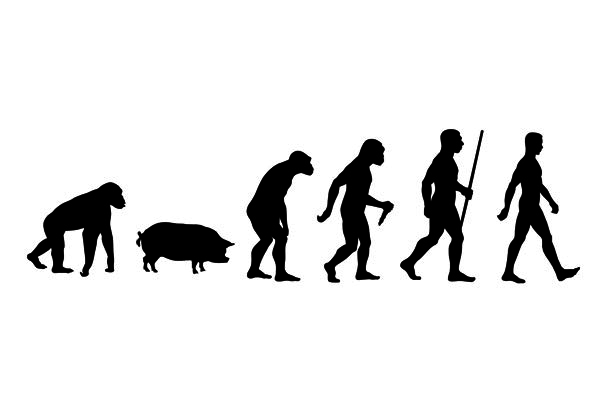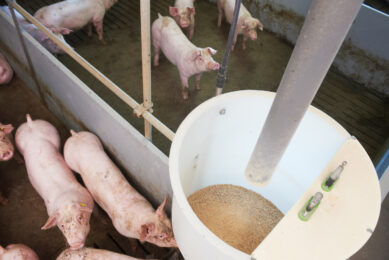American geneticist: Humans may be chimp-pig hybrid

An American geneticist has caused debate by suggesting that the human species began as the hybrid offspring of a male pig and a female chimpanzee.
The claim has been made by Dr Eugene McCarthy, University of Georgia, one of the world’s leading authorities on hybridisation in animals.
He bases his hypothesis on the fact that although homo sapiens has features in common with chimps, humans also have many distinguishing characteristics which cannot to be found in any other monkeys or apes.
He points to traits like light-haired skin, subcutaneous fat, light-coloured eyes, and protruding noses. He also refers to pigs and humans having similar organ and skin structures.
McCarthy’s hypothesis, which was posted on www.macroevolution.net, did receive a lot of criticism. One of them is that it is physically impossible for porcine sperm to recognise a chimpanzee’s egg as something to be fertilised. In addition, swine and chimpanzees have a different number of chromosomes, which is making the idea of a monkey-pig hybrid unfeasible.
McCarthy said that the pig-chimp hook up may have been followed by generations of ‘backcrossing’. This phenomenon is allegedly also visible in geeps (the products of hybridisation between sheep and goats). The offspring of that pairing would live among chimps and mated with them – becoming more like chimps and less like pigs.
This would explain the problem of relative infertility in hybrids. McCarthy pointed out that the common notion that hybrids are sterile is incorrect. In many cases hybrid animals would be able to breed with mates of the same species of either parent.
After various generations the hybrid strain would have become fertile enough to breed amongst themselves, McCarthy said.











